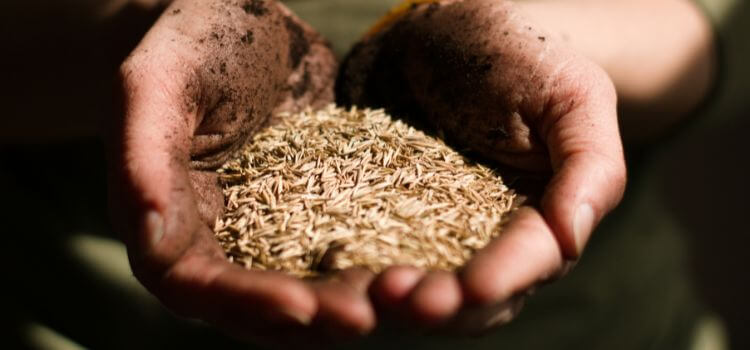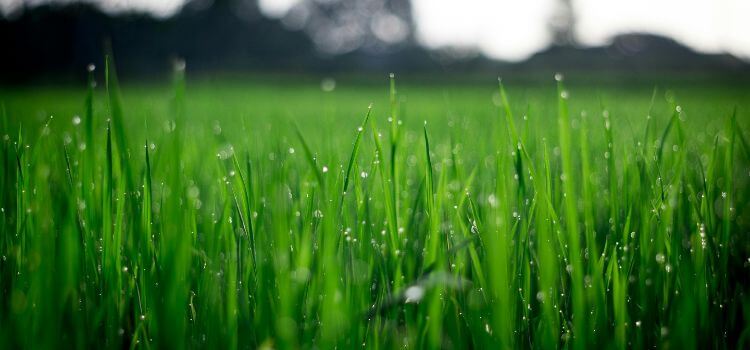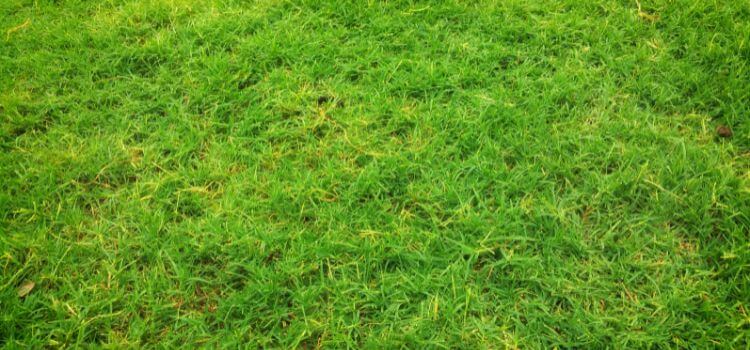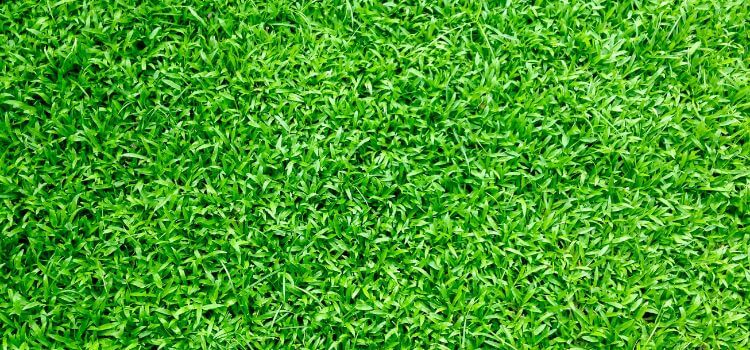As an Amazon Associate, I earn from qualifying purchases.
Insecticides specifically formulated for insects will not kill grass or grass seed. However, the non-selective or improperly applied insecticides can damage the grass.
Gardening enthusiasts and homeowners take pride in maintaining lush, healthy lawns. The impact of insecticides on grass is crucial for effective lawn care. While insecticides are powerful tools against pests, they must be chosen and used with precision. The right product ensures your green blades remain unharmed while targeting unwanted critters.
It’s imperative to select insecticides that are safe for lawns and to follow the application instructions meticulously. Misuse can lead to unintended harm to your grass or germinating seeds, potentially setting back the growth and health of your lawn. A strong grasp of product labels and proper application techniques will keep your garden safe and thriving.
Effects Of Insecticide On Grass
The lush green of a well-tended lawn is a sight to behold, but the invasion of pesky insects can turn this dream into a nightmare. As homeowners reach for insecticides, a pressing question arises: Will these chemicals harm the grass itself? Understanding the effects of insecticide on grass is crucial for maintaining a healthy lawn.
Direct Impact On Established Grass
Insecticides are often safe when used correctly on established grass. These products are designed to target specific insects, minimizing harm to the grass. Yet, the key lies in following the application instructions to the letter.
- Check the label for grass compatibility.
- Apply during suitable weather to avoid runoff.
- Use the recommended amounts to prevent over-application.
Proper use ensures that the grass remains unharmed while the unwanted insects are dealt with effectively.
Potential Damage To Grass Health
Despite the best intentions, even the most carefully selected insecticides can sometimes harm the grass if it’s young or stressed. Here are some ways insecticides may inadvertently affect grass health:
| Issue | Possible Cause | Prevention |
|---|---|---|
| Discoloration | Over-application | Follow label instructions |
| Stunted Growth | Wrong product for grass type | Select grass-specific insecticide |
| Burnt Patches | Application under intense sunlight | Apply in cooler parts of the day |
To protect young seedlings or stressed grass, choose insecticides labeled as ‘safe for use’ on these types of grass. Always consider the health and growth stage of your lawn before applying any product.

Effects Of Insecticide On Grass Seed
When you’re aiming for a lush lawn, knowing how insecticide affects grass seed is key. Will insecticide harm the delicate seeds? Let’s discuss the impact on germination and seedling growth.
Inhibition Of Germination
Insecticides can stop seeds from sprouting. They may contain chemicals that are too harsh for the seeds. This can delay or prevent your grass from growing. It’s like putting a barrier between the seed and its life source.
- Chemical concentration matters.
- Timing is crucial; apply insecticide when seeds are not vulnerable.
Long-term Impact On Seedling Growth
Young grass can struggle with insecticides. Even after seeds sprout, they’re still at risk. Harsh chemicals can weaken young plants, leading to a lawn that’s not thick and healthy.
Consider these points for a robust lawn:
- Select insecticides labeled safe for young grass.
- Use the correct amount; more is only sometimes better.
- Water properly to help the grass recover from any stress.
Factors Influencing The Outcome
Understanding the outcome of insecticide use on grass or grass seed is crucial. Several factors can affect the result, including the type of insecticide and the application specifics. Knowing these can help prevent damage to your lawn. Let’s dive into the details.
Type Of Insecticide Used
The chemical composition of an insecticide plays a significant role. Products labeled as “safe for lawns” typically won’t harm grass if used correctly. Selective insecticides target specific pests while leaving grass unharmed. Conversely, non-selective formulas might damage any plant life they touch. Always read labels before use.
- Herbicide-insecticides: Avoid these as they can kill weeds and grasses alike.
- Granular vs Liquid: Granular may be safer for seedlings as they require watering to activate.
- Organic options: These may be gentler on young grass, but check their effectiveness.
Application Timing And Dosage
The timing of the application is crucial. Applying insecticide to newly seeded lawns can be risky. Wait for grass to establish. Follow the manufacturer’s instructions on dosage. Over-application can damage grass, while under-application may not be effective against pests.
| Stage of Lawn | Recommended Action |
|---|---|
| Newly Seeded | Delay insecticide use; allow seeds to germinate. |
| Young Grass | Use mild, lawn-safe options if necessary. |
| Established Lawn | Follow label for safe and effective insect control. |
Correct dosage is key. Use a spreader for granules or a sprayer for liquids to ensure even coverage. Avoid application before rain or watering to prevent runoff.
Precautions And Best Practices
Precautions and Best Practices are crucial when using insecticides on your lawn. These steps protect your grass and grass seeds from harm. Always follow these guidelines to ensure the health of your lawn and the environment.
Safe Application Techniques
Reading the label is your first step. It tells you how much and where to apply the insecticide. Wear protective gear such as gloves and masks to safeguard your health. Apply insecticides during calm weather to prevent drift to other areas. Use a dedicated sprayer for insecticides only. This prevents cross-contamination with different products.
- Check the weather: Avoid application before rain to prevent runoff.
- Measure accurately: Use the exact amount specified to avoid over-application.
- Target specific areas: Only treat areas where pests are visible to minimize impact.
Alternative Pest Control Methods
Using non-chemical methods can be effective and safer for your lawn. These include:
- Cultural controls: Maintain a healthy lawn through proper watering, mowing, and fertilizing.
- Physical barriers: Use netting or floating row covers to protect grass seeds from insects.
- Natural predators: Encourage beneficial insects like ladybugs that eat harmful pests.
If chemical options are necessary, consider organic insecticides. Products like neem oil or insecticidal soap target pests but are milder on your lawn.
Regular monitoring helps catch problems early, reducing the need for heavy chemical use. A healthy lawn is your best defense against pests.

Recovery And Remediation
Using insecticides may cause the grass to suffer. It’s crucial to aid its recovery. This section covers restoring grass after harmful exposure and includes replanting tips.
Steps To Restore Grass After Insecticide Exposure
Restoring grass is a careful process. Follow these steps to help your lawn recover:
- Assess the damage: Check how much of the grass is affected.
- Remove dead grass: Use a rake to clear away dead patches.
- Soil aeration: Aeration helps the soil breathe and promotes growth.
- Apply soil amendments: Add compost or topsoil to replenish nutrients.
- Water regularly: Keep the soil moist, not soaked, to encourage new growth.
Replanting Grass Seed
Choose the right time to replant. Here’s how to ensure the new seeds thrive:
- Select quality seeds: Match the seed type to your climate and soil.
- Spread evenly: Use a spreader for consistent coverage.
- Light soil cover: Protect seeds with a thin soil layer.
- Keep moist: Water the area gently to avoid washing seeds away.
- Limit traffic: Keep people and pets off the new seeds until they grow.
Case Studies And Expert Opinions
The ‘Case Studies and Expert Opinions’ section unravels the truth behind these chemical agents. We’ll explore case studies highlighting the aftermath of insecticide use and glean wisdom from seasoned landscaping experts.
Real-life Examples Of Insecticide Damage
Grass and grass seeds can react unpredictably to insecticides. Documented cases show a range of outcomes:
- Yellowing or browning of grass shortly after application.
- Delayed germination of grass seeds.
- Destruction of tender seedlings in severe cases.
One homeowner reported using a common lawn insecticide. It led to patchy growth and dead zones where grass seeds failed to sprout.
Insights From Landscaping Professionals
Landscaping professionals emphasize the importance of careful product selection and application. Here are their key takeaways:
| Expert Tip | Reasoning |
|---|---|
| Test soil before application | Ensures compatibility with insecticide |
| Follow label instructions | Prevents overuse and potential damage |
| Choose selective insecticides | Targets pests without harming grass |
A turf specialist shared an experience with a client’s lawn. The client used a broad-spectrum insecticide. The lawn suffered due to the insecticide’s non-selective nature. The expert recommended a targeted approach for future pest control.

Frequently Asked Questions
Bug killer and grass seed should not be applied simultaneously. Check the bug killer’s label for appropriate seeding intervals to ensure optimal grass growth and effective pest control.
Yes, you can apply insecticide to new grass, but it’s crucial to select a product labeled safe for young turf and follow the manufacturer’s instructions precisely to avoid damage.
Using pesticides properly should not kill your grass. Always select a product intended for your specific grass type and follow the application instructions carefully. Overuse or incorrect application can harm your lawn.
Triazicide is not designed to kill grass seed. It targets lawn pests and should not harm properly planted grass seed when used as directed.
Conclusion
Learning the impact of insecticides on grass and grass seeds is essential for any gardener. Proper application ensures your lawn remains healthy, avoiding damage to your green spaces. Remember to choose products wisely, follow label instructions, and consider timing for the best results.
Protect your lawn’s vitality with informed insecticide use.

